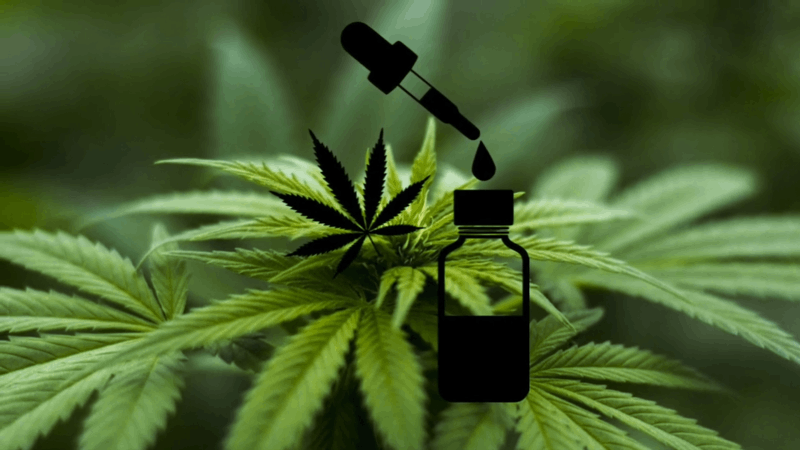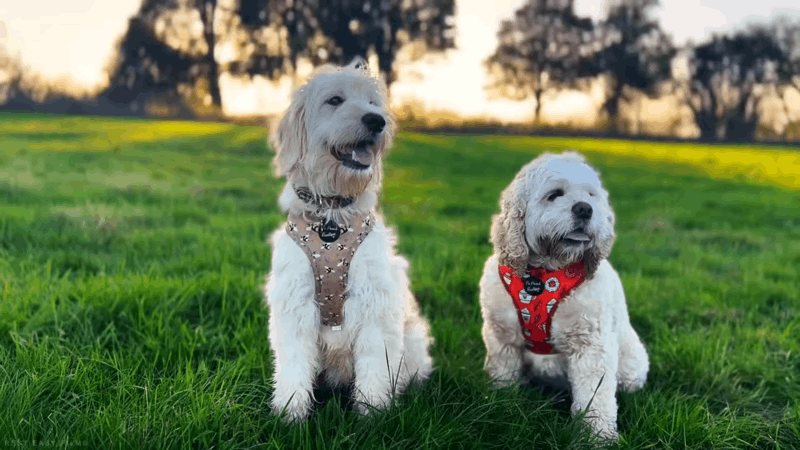No products in the cart.
As attention shifts towards managing aggressive behavior in dogs, CBD for dog aggression is gaining recognition as a potential natural solution. Derived from organic hemp, CBD dogs offers promising therapeutic properties that can help promote a sense of calmness and balance.
In this blog, we’ll examine the advantages of CBD for dog aggression and offer helpful advice on how to include CBD into your dog’s daily routine. By combining CBD with professional guidance, behavior modification techniques, and consistent administration, you can pave the way for a more harmonious and peaceful life for your beloved canine companion.
Understanding Aggression in Dogs

It’s important to comprehend dog aggression for both the animal’s protection and the safety of those around it. Aggression can manifest in various ways including growling, biting, or lunging, and it may stem from different underlying causes. Some dogs may display aggression due to fear, past trauma, lack of socialization, or territorial instincts.
It is important to approach aggression with empathy and seek professional guidance from a veterinarian or a qualified dog behaviorist. By identifying the triggers, implementing appropriate training techniques, and creating a safe environment, it is possible to manage and mitigate aggression in dogs, allowing them to lead happier, more balanced lives.
Causes of Aggression in Dogs
Aggression in dogs can have multiple underlying causes, and understanding these factors is crucial for addressing the issue effectively. Here are some common causes of aggression in dogs
- Fear and anxiety: Dogs may display aggression when they feel threatened or afraid. Past traumatic experiences, lack of socialization, or specific phobias can trigger fear-based aggression.
- Protective/Resource guarding: When their territory, food, toys, or other resources are threatened or taken away, dogs may become aggressive. This behavior is rooted in their instinct to protect what they perceive as valuable.
- Lack of socialization: Insufficient exposure to different people, animals, and environments during the critical socialization period can lead to fear and aggression in dogs. They may perceive unfamiliar situations as threatening and respond aggressively.
- Frustration and redirected aggression: Dogs that are unable to access or fulfill their desired goals or experiences can become frustrated, leading to aggressive outbursts. Additionally, they may redirect their frustration onto nearby individuals or animals.
- Pain or medical issues: Dogs in pain or discomfort may display aggression as a defensive mechanism. It’s essential to rule out any underlying medical conditions that could be causing or exacerbating aggressive behavior.
- Predatory behavior: Some dogs may exhibit aggression driven by their natural predatory instincts. This can be triggered by the sight, sound, or movement of smaller animals or even children.
- Genetic predisposition: Certain breeds or individual dogs may have a genetic predisposition towards aggression. While a dog’s temperament and response to particular events are influenced by heredity, they do not alone dictate behavior.
It is significant to highlight that dog aggression is a complicated issue, and a number of circumstances frequently lead to its emergence. Consulting with a professional dog behaviorist or veterinarian experienced in canine aggression can help identify the underlying causes and develop an appropriate behavior modification plan.
Types of Dog Aggression
Understanding types can help in identifying and addressing the specific aggression issue. Here are some common types of dog aggression
- Fear aggression: Dogs display fear aggression when they feel threatened or scared. When they feel danger, they may engage in protective actions like growling, barking, or snapping to defend themselves.
- Territorial aggression: Dogs with territorial aggression exhibit aggression towards individuals or animals that approach or enter their perceived territory. This can include their home, yard, or even their owner.
- Protective aggression: This type occurs when dogs feel the need to protect someone they view as a member of their social group from danger.
- Resource guarding aggression: Dogs that display resource guarding aggression become aggressive when they believe their valued resources, such as food, toys, or bones, are being threatened or taken away. They may growl, snap, or bite to defend their possessions.
- Dog-to-dog aggression: This could happen as a result of a lack of socialization, resource competition, or bad experiences in the past. Dog-to-dog aggression can range from mild growling and posturing to intense fighting.
- Predatory aggression: Certain dogs exhibit predatory aggression, which is driven by their natural instinct to hunt and chase smaller animals. They may display intense focus, stalking behavior, and sudden bursts of aggression towards smaller animals.
- Redirected aggression: Redirected aggression happens when a dog is unable to reach the target of their aggression, so they redirect it onto another individual or animal nearby. This can occur when a dog is frustrated, aroused, or overstimulated.
Please remember that these types are not mutually exclusive, and a dog may display multiple forms of aggression. Each type requires a specific approach for behavior modification, so consulting with a professional dog behaviorist is recommended to develop an appropriate and effective treatment plan.
Is Aggression in Dogs a Common Issue?
Aggression in dogs is a common issue that many dog owners and professionals encounter. While most dogs are friendly and well-behaved, others can be aggressive to varied degrees. Aggression can arise due to a combination of factors, including fear, lack of socialization, past trauma, or resource guarding instincts. Knowing the signs of aggression is so important and pet owners should seek professional help if needed.
How to Calm an Aggressive Dog?

Calmly approaching and managing an aggressive dog requires caution and knowledge. Here are some steps to help calm an aggressive dog:
- Ensure safety: Prioritize safety for yourself, others, and the dog. Create distance from potential triggers and use physical barriers if necessary.
- Remain calm and composed: Dogs can sense anxiety or fear, which may escalate their aggression. Stay calm, speak softly, and avoid making sudden movements.
- Avoid punishment: Punishment can worsen aggression and increase fear. Do not yell, hit, or physically reprimand the dog. It may lead to defensive or reactive behavior.
- Remove triggers: Identify and eliminate any known triggers that provoke aggression in the dog’s environment. This may include separating from other animals or reducing exposure to stressful stimuli.
- Consult a professional: Seek guidance from a qualified dog behaviorist or veterinarian with experience in aggression. They can assess the situation, provide a proper diagnosis, and guide you through effective behavior modification techniques.
- Positive reinforcement and desensitization: Use positive reinforcement techniques to reward calm behavior. Gradual desensitization to triggers can help the dog develop a more relaxed response over time.
- Proper exercise and mental stimulation: Regular exercise and mental stimulation can help reduce anxiety and channel the dog’s energy in a positive way. Consult a professional for appropriate exercise recommendations.
- Consider professional training: In severe cases, professional training and behavior modification programs may be necessary. A skilled professional can develop a customized plan to address the underlying causes of aggression.
Remember, addressing aggression in dogs requires patience, consistency, and professional guidance. It is essential to prioritize the safety of all involved and approach the process with empathy and understanding.
Can You Use CBD Oil for Dog Aggression?

CBD oil is gaining attention as a potential natural remedy for managing aggression in dogs. CBD has shown promise in reducing anxiety and promoting relaxation in both humans and animals. When it comes to dog aggression, CBD may help calm an agitated or anxious dog, potentially reducing aggressive tendencies.
While research on the specific effects of CBD for dog aggression is ongoing, many pet owners and experts have reported positive results. It is important to consult with a veterinarian experienced in CBD for dog aggression to determine appropriate dosage and ensure its safe integration into a comprehensive behavior modification plan.
Are There Any Dangers to Using CBD for Dog Aggression?
Using CBD for dog aggression is generally considered safe, but it is important to approach it with caution and consult a veterinarian beforehand. The use of CBD for dog aggression should be seen as a complementary approach alongside proper behavior modification techniques and professional guidance.
It is crucial to use high-quality CBD for dog aggression and follow recommended dosages. Furthermore, individual dogs may react differently to CBD, and some may develop adverse effects such as sleepiness, dry mouth, or appetite abnormalities. To ensure the well-being and safety of furry friends, pet owners should monitor them closely and get advice from experienced veterinarians.
How does CBD Work for aggression in dogs?
CBD has shown promise in helping to address aggression in dogs. CBD is a natural compound derived from the cannabis plant interacting with the endocannabinoid system (ECS) in both humans and animals. The ECS plays an important role in regulating various bodily functions like mood, stress response, and behavior. CBD oil for dogs with aggression may help promote a sense of calm and relaxation by influencing the ECS receptors.
CBD’s anti-anxiety and anti-inflammatory characteristics may contribute to its potential benefits in aggressiveness management. To determine the appropriate CBD dosage, formulation, and overall suitability for your dog’s specific needs, a vet should be consulted.
Best CBD for Dog Aggression
CBD for dog aggression has gained attention as a potential solution. It has been reported to have calming and anti-anxiety effects, making it a promising option for managing aggression in dogs.
When choosing the best CBD for dog aggression, look for high-quality products specifically formulated for pets. These products should be derived from organic hemp, third-party tested for purity and potency, and free from harmful additives. CBD oil or treats specifically designed for dogs are commonly used and can provide a convenient and effective way to administer CBD for dog aggression. It’s important to consult with a veterinarian experienced in CBD use for pets to determine the appropriate dosage and ensure its suitability for your dog’s unique needs.
Tips for Introducing CBD for Aggression in Dogs

When introducing CBD for dog aggression management, consider the following tips:
- Consult with a veterinarian: Before starting any new supplement, including CBD for dog aggression, consult with a veterinarian who can provide guidance specific to your dog’s needs and health condition.
- Choose high-quality CBD products: Select CBD products specifically formulated for dogs and ensure they are derived from organic hemp and have undergone third-party testing for quality and purity.
- Start with a low dosage: Start with a little CBD dose and gradually raise it as necessary. Monitor your dog’s response closely and consult your veterinarian if adjustments are necessary.
- Administer CBD consistently: Give CBD for dog aggression consistently at the same time each day to establish a routine. This can help maintain a steady level of CBD in their system for potential therapeutic effects.
- Monitor your dog’s behavior: Observe any changes in your dog’s behavior, including their level of aggression, after starting CBD for dog aggression. Keep a journal to track their progress, noting any improvements or potential side effects.
- Combine CBD with behavior modification: CBD for dog aggression can complement behavior modification techniques recommended by a professional. Combine CBD with positive reinforcement training, desensitization exercises, and other behavior modification strategies for a holistic approach.
- Be patient: CBD may take time to show its effects, so be patient and consistent with the administration. Monitor your dog’s progress over weeks or even months to determine its effectiveness for aggression management.
Keep in mind that CBD is not a panacea, and that each dog will respond differently to it. It is crucial to work closely with your veterinarian and a professional behaviorist to create a comprehensive plan that addresses your dog’s aggression and includes CBD as a potential tool for management.
Conclusion
CBD for dog aggression offers a promising avenue for managing this challenging behavior. When introducing CBD to a dog’s routine for aggression management, it is essential to consult with a veterinarian to ensure safety and determine the appropriate dosage. Trust in the potential of CBD for dog aggression management, and take proactive steps towards providing your dog with a better quality of life.
Hello, I am Hazel Bennett, an experienced copywriter specializing in the fascinating topic of CBD for dogs. With a passion for pet wellness and extensive knowledge of CBD’s potential benefits, I am here to provide you with informative and engaging content.



